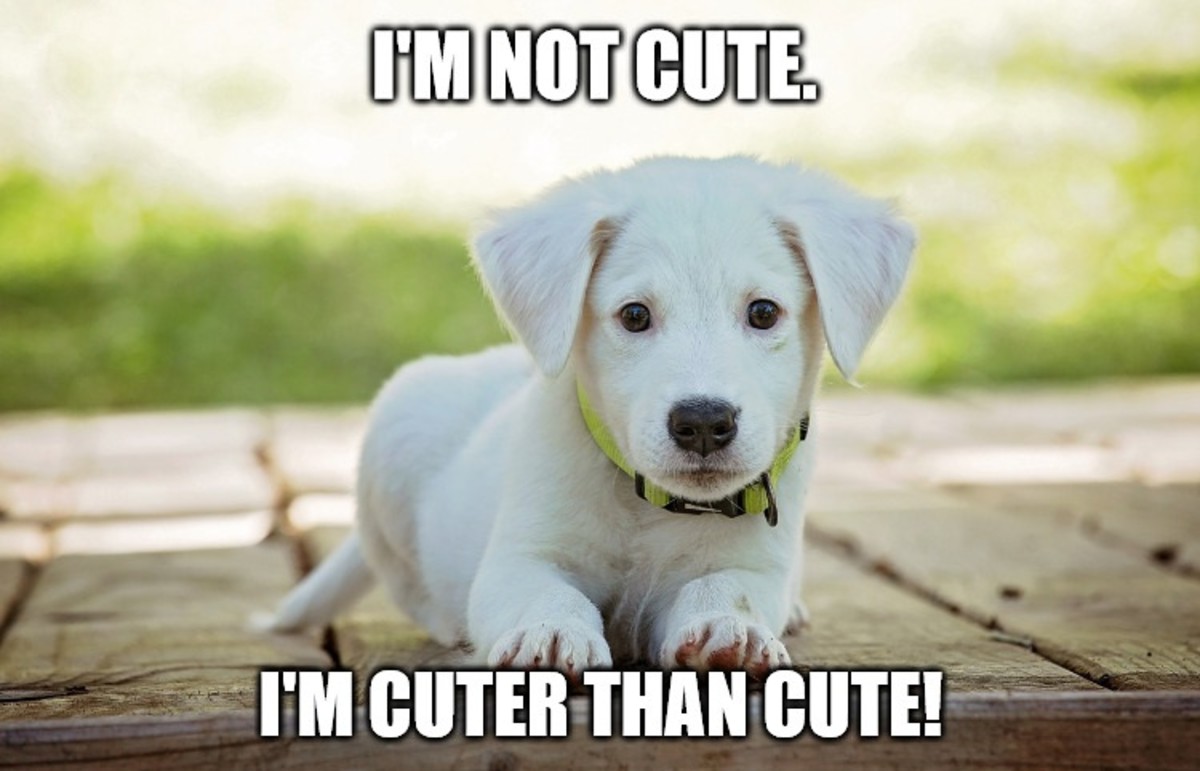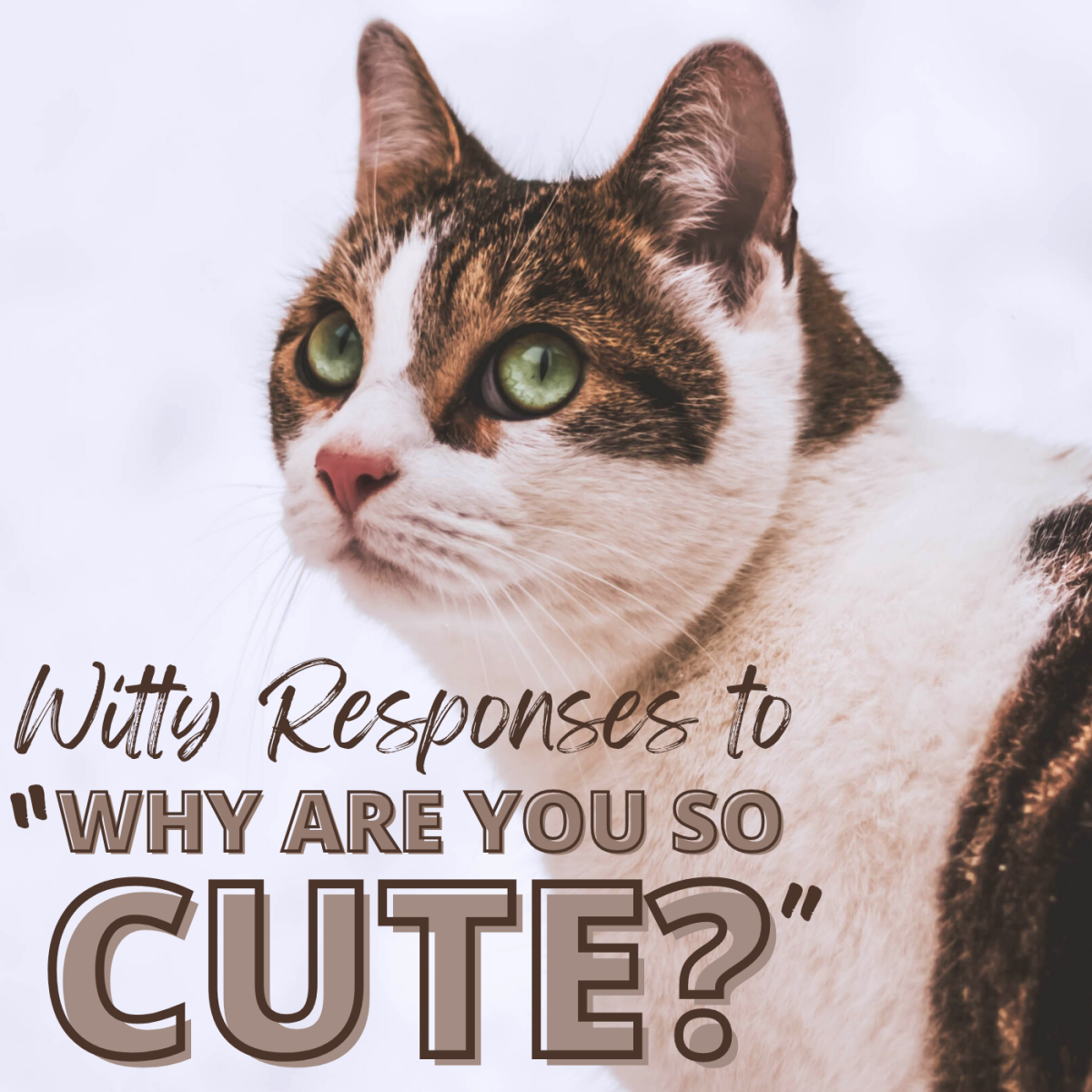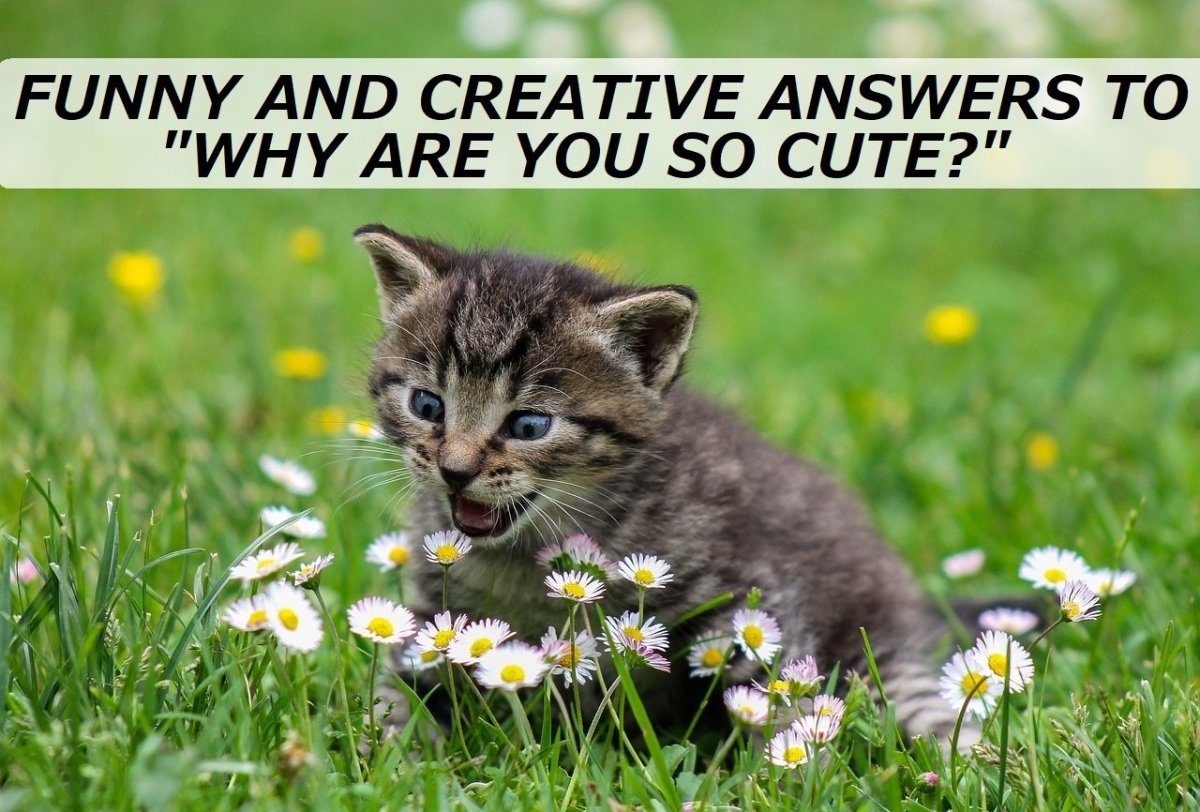Unpacking Your Charm: Why Am I So Cute?
Have you ever looked in the mirror, or received a compliment, and genuinely wondered, "why am I so cute?" It's a question that might sound a little self-indulgent at first, but it's actually a deeply human inquiry into self-perception, attractiveness, and the subtle ways we connect with others. It’s not about vanity; it’s about understanding the unique blend of traits that make you, well, *you*, and how those traits resonate with the world around you. This article delves into the multifaceted reasons behind that feeling, exploring everything from evolutionary biology to psychological insights and social dynamics.
The quest to understand "why" is a fundamental human drive. For what reason, cause, or purpose do certain qualities evoke a sense of endearment or charm? Whether it’s a genuine compliment from a friend, a fleeting moment of self-admiration, or simply a curiosity about your own appeal, asking "why am I so cute?" opens up a fascinating exploration of what makes us inherently appealing. Let's embark on this journey to uncover the layers of your unique adorableness.
Table of Contents
- The Universal Question: "Why Am I So Cute?"
- Evolutionary Roots of Adorableness
- The Psychology Behind Your Charm
- Social and Cultural Dimensions of Cuteness
- Beyond Looks: Personality and Presence
- Embracing Your Unique Brand of Cuteness
- The Benefits of Feeling "Cute"
- Cultivating and Maintaining Your Appeal
The Universal Question: "Why Am I So Cute?"
It might seem like a simple question, but "why am I so cute?" is loaded with layers of meaning. It's a personal inquiry, often sparked by external validation or an internal moment of self-reflection. Unlike asking "why did you behave so badly?" which seeks a negative reason, this question is usually born from a positive, albeit sometimes perplexing, experience. For one thing, it can be confusing to pinpoint exactly what makes someone perceive you as cute. Is it your smile? Your laugh? A particular mannerism? As to why you might feel this way, or why others might perceive you this way, it really isn't always obvious. You might genuinely not know the specific reason, but the feeling or the perception is undeniably there. The word "why" itself, as an old Latin form 'qui' meaning 'how', has evolved to ask the reason or purpose of something. When we ask "why am I so cute?", we are essentially asking: for what cause, reason, or purpose do I possess this quality that evokes a positive, endearing response from myself or others? This isn't just about physical appearance; it encompasses a blend of physical traits, personality quirks, and the way you interact with the world. It’s a holistic question that invites a deeper look into what makes you uniquely appealing.Evolutionary Roots of Adorableness
Our perception of "cuteness" isn't purely subjective; it's deeply wired into our biology, stemming from evolutionary imperatives. The traits we find cute often serve a crucial purpose: to elicit care and protection. This is a fundamental aspect of human survival, particularly for offspring. When you ponder "why am I so cute," you're tapping into ancient biological responses that have been refined over millennia. This innate wiring explains why certain features consistently trigger a positive, nurturing reaction in most people, regardless of cultural background. It's a universal language of appeal that transcends individual preferences.The Power of Neoteny
One of the most significant evolutionary explanations for cuteness is neoteny, the retention of juvenile features into adulthood. Think of babies: large heads, big eyes, small noses, chubby cheeks, and a generally soft, rounded appearance. These features are universally perceived as cute because they trigger our innate caregiving instincts. When an adult exhibits some degree of neoteny – perhaps having larger eyes, a rounder face, or a softer jawline – these features can evoke a similar, albeit less intense, protective and affectionate response. It's a subconscious signal that says, "I'm harmless, care for me." This biological predisposition is a powerful underlying reason why many people might be considered "cute" rather than just "beautiful" or "handsome." It's about evoking warmth and a desire to nurture, a subtle echo of our primal need to protect the vulnerable.Signaling Health and Vitality
Beyond neoteny, cuteness can also be linked to signals of health and vitality. Clear skin, bright eyes, symmetrical features, and a lively demeanor are often associated with good health. From an evolutionary standpoint, these are desirable traits as they suggest strong genes and a robust immune system. While not directly "cute" in the baby-like sense, a healthy glow and vibrant energy contribute to an overall appealing presence that can be interpreted as charming or cute. A cheerful disposition, often accompanying good health, also adds to this perception. This combination of physical well-being and positive energy creates an aura of attractiveness that goes beyond mere aesthetics, contributing to the answer of "why am I so cute." It's about an underlying sense of vigor that is inherently appealing.The Psychology Behind Your Charm
Our brains are complex processors of information, and how we perceive ourselves and how others perceive us is heavily influenced by psychological phenomena. The question "why am I so cute?" isn't just about what's objectively there, but also about how our minds interpret and assign meaning to those traits. Cognitive biases, self-perception, and emotional states all play a crucial role in shaping this understanding. It's a fascinating interplay between what we project and what others receive, often leading to a perception of charm that feels almost unquantifiable.The Halo Effect and Cognitive Biases
The "halo effect" is a cognitive bias where our overall impression of a person (e.g., "they are cute") influences how we feel and think about their character. If someone perceives you as cute, they might subconsciously attribute other positive qualities to you, such as kindness, intelligence, or trustworthiness, even without direct evidence. This creates a positive feedback loop: being seen as cute leads to being seen as good, which in turn reinforces the perception of cuteness. Similarly, other biases, like confirmation bias, might lead people to seek out and remember instances that confirm their initial impression of your cuteness. This psychological phenomenon explains why someone might be seen as cute even if they don't fit conventional beauty standards; their overall positive impression casts a "halo" over all their attributes. This contributes significantly to why someone might wonder, "why am I so cute?" when they receive such positive feedback.The Role of Self-Perception
Your own self-perception plays a crucial role in how you project yourself and how others receive you. If you genuinely believe you possess charming qualities, you're more likely to exude confidence, warmth, and an approachable demeanor. This positive self-image can manifest in your body language, facial expressions, and vocal tone, all of which contribute to an overall sense of appeal. Conversely, if you're constantly questioning your attractiveness, it might be harder for others to see your inherent charm. It's a powerful feedback loop: believing you are cute can make you act in ways that reinforce that perception in others. This isn't about arrogance, but about a healthy self-esteem that allows your natural light to shine through. Understanding this internal component is key to answering "why am I so cute?" from a personal standpoint.Social and Cultural Dimensions of Cuteness
While biology provides a foundation, the concept of "cuteness" is also heavily influenced by social and cultural norms. What is considered cute can vary across different societies and even within subcultures. For example, some cultures might prioritize innocence and childlike features, while others might find a playful mischievousness more endearing. Trends in media, fashion, and popular culture also shape our collective understanding of what constitutes "cute." The word itself, like many descriptive terms, evolves in its usage and connotations over time. Consider how certain words or phrases gain specific meanings within a cultural context. Just as "fruitcake" became an insulting word for someone strange, or "pussy" for a coward, the perception of "cute" is not static. It's shaped by shared experiences, media portrayals, and prevailing societal values. The way we dress, our mannerisms, our speech patterns – all these are learned behaviors that can contribute to how we are perceived in a social setting. Someone might be considered cute because they embody a current cultural ideal of charm or innocence, or perhaps because they defy expectations in an endearing way. This social lens adds another layer to understanding "why am I so cute?" beyond just individual attributes.Beyond Looks: Personality and Presence
It's a common misconception that cuteness is solely about physical appearance. While physical traits play a role, a significant portion of what makes someone "cute" lies in their personality and overall presence. Think about it: you might know someone who isn't conventionally attractive but is universally adored because of their charming demeanor. This is where the true depth of cuteness lies, extending far beyond superficial beauty. A genuine smile, a hearty laugh, an empathetic ear, or a quirky sense of humor can all contribute immensely to someone's perceived cuteness. A person who is kind, approachable, and radiates positive energy often evokes a sense of warmth and endearment in others. Their presence lights up a room, making people feel comfortable and happy. This magnetic quality is often what truly makes someone "cute" in the eyes of others. It’s about how you make people feel, the comfort and joy you bring to interactions. Your unique way of expressing yourself, your genuine interest in others, and your overall positive outlook can be incredibly endearing. It’s this intangible essence that often leads to the question, "why am I so cute?" – because it’s not just what you see, but what you feel when you’re around them.Embracing Your Unique Brand of Cuteness
The beauty of asking "why am I so cute?" is that it encourages self-discovery and appreciation for your unique qualities. There isn't a single, rigid definition of cuteness; it's a spectrum of traits and expressions. Your cuteness might stem from a combination of physical features, like a dimpled smile or expressive eyes, blended with personality traits such as a playful spirit, genuine vulnerability, or an infectious optimism. It could be your unique sense of style, your particular way of speaking, or even your endearing clumsiness. Instead of trying to fit into a preconceived notion of what "cute" should be, the real power lies in recognizing and embracing what makes *you* uniquely charming. This self-acceptance is incredibly attractive. When you are comfortable in your own skin and allow your authentic self to shine, it creates an aura of genuine appeal that is far more compelling than any manufactured image. It's about celebrating the quirks and characteristics that are distinctly yours, understanding that these very things contribute to your individual brand of adorableness. This self-awareness is a key part of understanding your own appeal.The Benefits of Feeling "Cute"
Feeling cute, or being perceived as such, comes with a surprising array of benefits, both personal and social. It's not just about superficial compliments; it can genuinely impact your well-being and interactions. When you feel good about yourself, it naturally boosts your confidence and self-esteem. This positive self-regard can lead to a more optimistic outlook on life, reducing stress and fostering a sense of happiness. It's a virtuous cycle: feeling good about your appeal can make you more approachable, which in turn leads to more positive interactions. Socially, being perceived as cute often elicits positive responses from others. People tend to be more forgiving, more willing to help, and more open to connection with individuals they find endearing. This isn't about manipulation, but about the natural human tendency to respond positively to perceived charm and innocence. It can open doors to new friendships, foster deeper connections, and even improve professional relationships by making you seem more approachable and likable. The positive reinforcement from others can further solidify your self-perception, reinforcing the answer to "why am I so cute?" and making you more comfortable in your own skin. This positive feedback loop is a powerful driver of well-being.Cultivating and Maintaining Your Appeal
While some aspects of cuteness might be innate, many elements can be cultivated and enhanced. It's about nurturing the qualities that make you appealing and presenting your best self to the world. This isn't about pretending to be someone you're not, but about amplifying your natural charm. Firstly, genuine self-care is paramount. This includes maintaining good hygiene, dressing in a way that makes you feel confident and comfortable, and taking care of your physical and mental health. A healthy body and mind contribute significantly to a vibrant and appealing presence. Secondly, cultivating a positive attitude and genuine kindness goes a long way. A warm smile, active listening, and an empathetic approach to others are universally attractive traits. Remember, it's not just about what you look like, but how you make others feel. Thirdly, embracing your unique quirks and allowing your authentic personality to shine through is crucial. Don't be afraid to be yourself; your individuality is often your most charming asset. Finally, continuous self-reflection and growth can help you understand and refine your appeal. As to why you do what you do, sometimes it's simply instinct, but understanding your own behaviors can help you present yourself more effectively. By focusing on these areas, you can continue to enhance and maintain the qualities that make you wonderfully cute.Conclusion
The question "why am I so cute?" is a delightful journey into self-discovery, blending insights from evolutionary biology, psychology, and social dynamics. It's a question that highlights the multifaceted nature of human appeal, encompassing everything from innate biological triggers like neoteny to the profound impact of personality, self-perception, and cultural context. Your unique blend of physical features, charming mannerisms, and genuine character creates an undeniable aura of adorableness that resonates with others. Ultimately, understanding your own cuteness isn't about seeking external validation, but about appreciating the unique qualities that make you, well, *you*. It's about recognizing the warmth, kindness, and individuality that you bring to the world. So, the next time you ask yourself, "why am I so cute?", remember that it's a testament to your inherent charm and the beautiful way you connect with others. We invite you to share your thoughts in the comments below – what do you think makes someone truly cute? Or perhaps, what aspects of your own charm do you cherish the most? Share this article with someone who makes you wonder "why are *they* so cute?" and let's celebrate the diverse tapestry of human appeal together.
100+ Funny and Creative Answers to "Why Are You so Cute?" - PairedLife

100+ Funny and Creative Answers to "Why Are You so Cute?" - PairedLife

100+ Funny and Creative Answers to "Why Are You so Cute?" | PairedLife